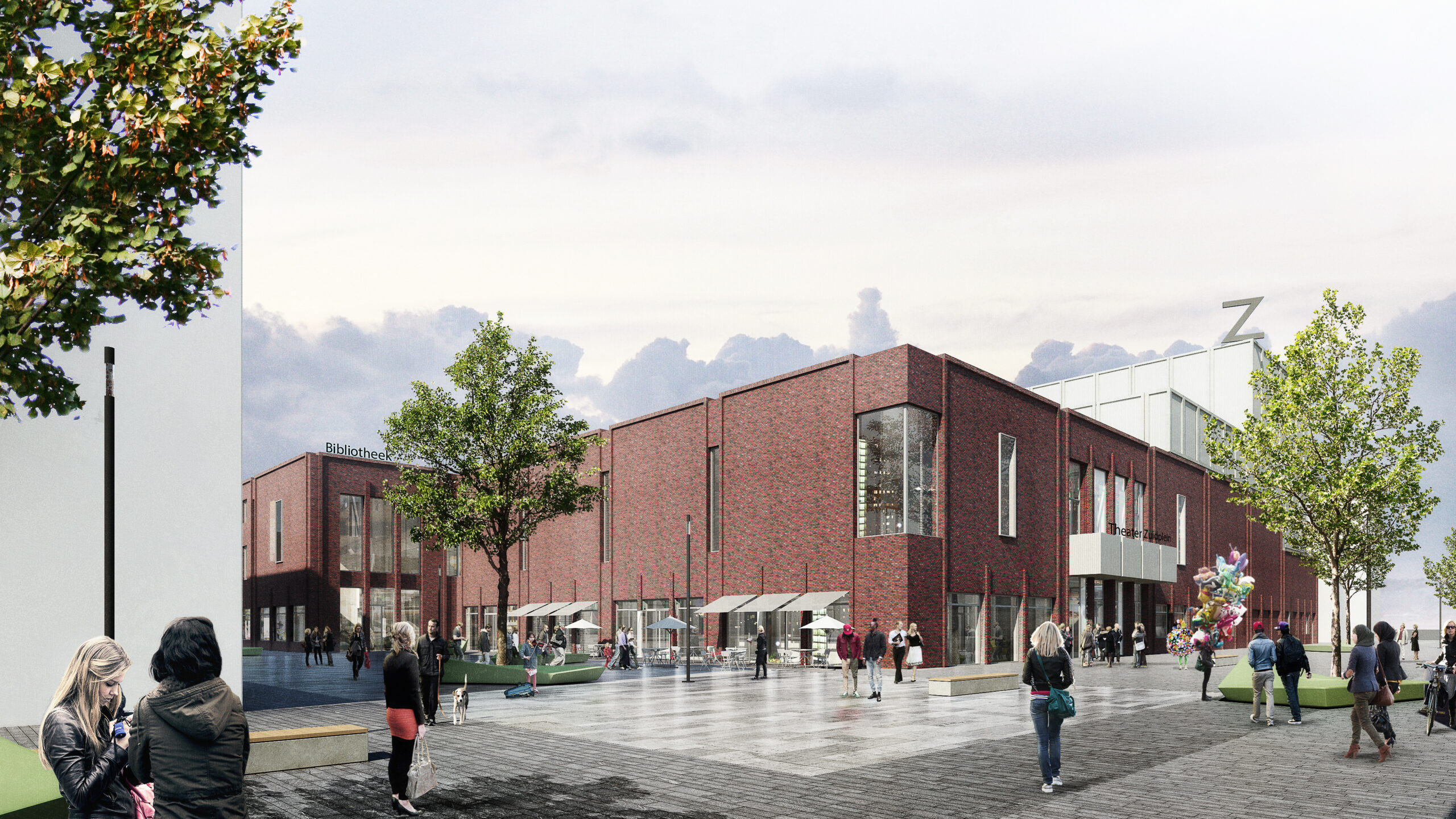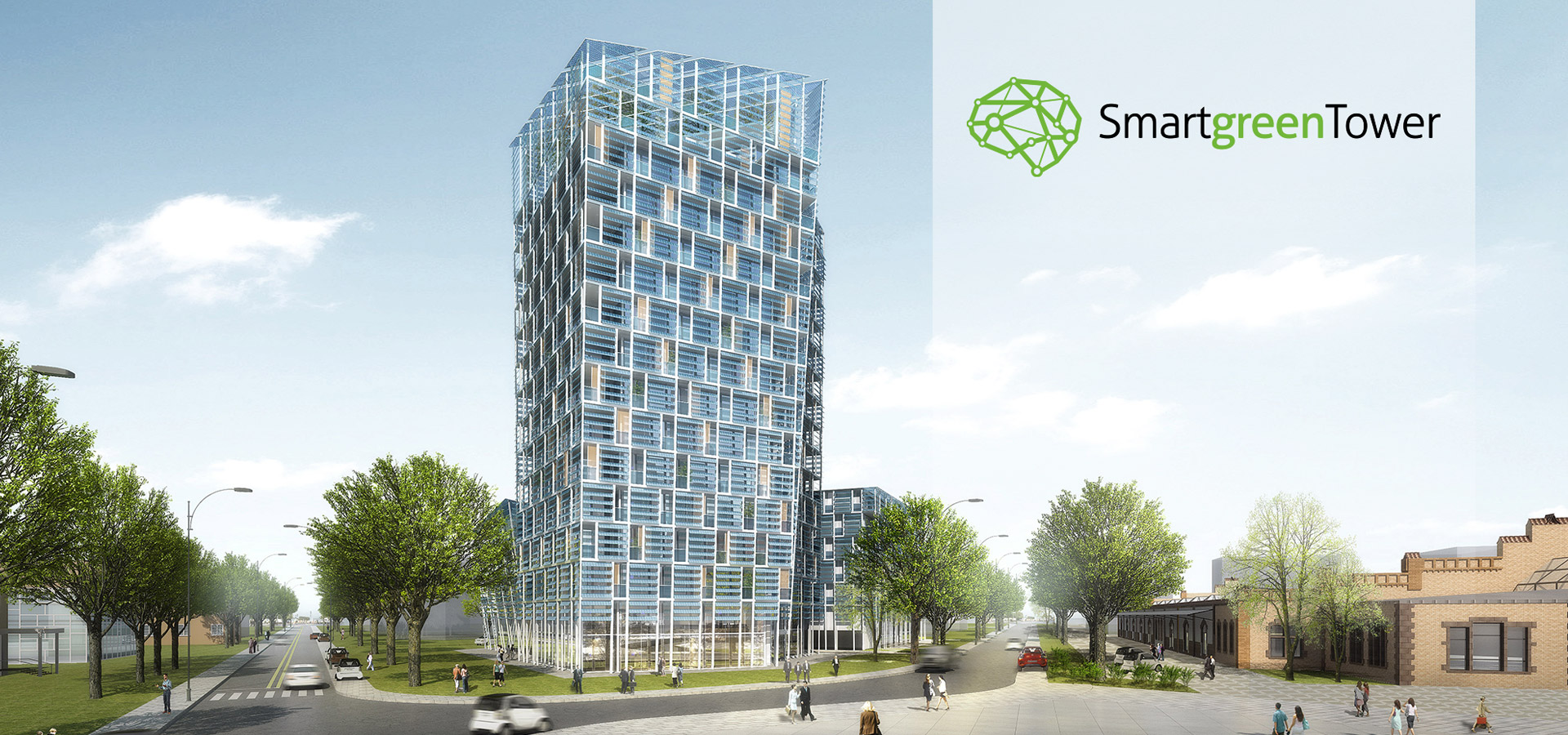Energizing Smart and Sustainable Cities
One of the biggest challenges in creating a sustainable future is remodeling our cities to match both energy needs and climate concerns. ICLEI brings its expertise to several projects working to make cities greener, cleaner, and more accessible to all.
Cities are the forerunners in the transition towards a low-carbon and resource-efficient economy. The idea of the “Smart City” has become a popular answer to the challenge of energy efficiency, echoing societal transformations. Through the digitalization of the urban environment, the concept of the smart city combines the growing demand for transparency with citizen involvement and an awakened environmental consciousness.
As a global network of local governments, ICLEI has been working with cities on local sustainability policies for more than two decades. In Europe, ICLEI supports over 160 members to find sustainable energy solutions through projects, initiatives, and programs. Capitalizing on this experience, ICLEI is taking part in the 2017 EU Sustainable Energy Week, coordinating a “Smarter is Cleaner” policy session on June 22 in the Residence Palace, Brussels. From June 19 through the 23, ICLEI is displaying photos of sustainable energy workers from four of its member cities as part of Revolve’s Visualizing Energy exhibition that will be on show in the Cinquantenaire Park in Brussels throughout the summer.
Freiburg: Over 25 years of sustainable inspiration
When the ICLEI European Secretariat office first opened its doors in Freiburg, Germany, 25 years ago, the city was already known for its environmental focus. Now internationally known as the “Green City,” Freiburg has established itself as one of the most sustainable cities in the world. And, as one of the fastest growing cities in Germany, the city is planning its urban development with ambitious energy goals.
Freiburg has established itself as one of the most sustainable cities in the world.
With the aim of becoming carbon neutral by 2050, Freiburg is developing a smart city vision as part of its ‘Green City’ concept. The transformation of Freiburg’s largest and oldest industrial area into a Smart Energy District will provide a nation-wide role model for a futureoriented, sustainable, and energy efficient area. To continue sharing renewable energy and energy efficiency experiences in the urban realm, Freiburg will once again host the Local Renewables Conference co-organized with ICLEI in 2018.

European energy-efficient cities
Cities like Freiburg are well-placed to lead collaborations that are fundamental to enabling the transition to a low-carbon economy. Cities can learn a lot from each other on this complex matter, and the European Commission promotes a collaborative approach through its Horizon 2020 Research and Innovation funding program. The aim is to unite cities, industry, and citizens to demonstrate solutions and business models that can be scaled and replicated, and that lead to measurable improvements in energy and resource efficiency, new markets, and new jobs. These projects represent an interesting financing prospect for cities and their partners, providing an injection of funds for the redevelopment of entire neighborhoods and the opportunity to test cutting-edge solutions.
Through Horizon 2020, the so-called “lighthouse” project brings together cities that will test and implement smart solutions and “follower cities” that will observe the project with the aim to replicate the relevant solutions. There are currently 9 lighthouse projects in place, which will take about 5 years to complete. The first projects were put into place in 2015.
Defining Lighthouse Cities
According to the Horizon 2020 specifications, lighthouse cities “must demonstrate solutions at district scale integrating smart homes and buildings, smart grids, energy storage, electric vehicles and smart charging infrastructures, as well as latest generation ICT platforms which must be based on open specifications. This should be accompanied by energy efficiency measures and the use of very high shares of renewables at the level of districts.”
GrowSmarter and RUGGEDISED
ICLEI is involved in two Horizon 2020 lighthouse projects. Since 2015, the GrowSmarter project – with lighthouse cities Stockholm, Cologne and Barcelona – is implementing a range of smart technologies in energy, infrastructure, and transport, which are designed to achieve energy savings and self-sufficiency in urban neighborhoods.
GrowSmarter aims to stimulate city uptake by using the three lighthouse cities to showcase 12 Smart City solutions. These solutions will combine advanced information and communication technologies with better connected urban mobility while incorporating renewable energy sources directly into the city’s grid. ICLEI is working with the 5 follower cities – Valetta, Suceava, Porto, Cork, and Graz – to learn from the lighthouse cities’ experiences and identify measures suitable for their specific local contexts.
It’s more than green economy, it’s more than Mother Nature, it’s more than clean air, it’s also about stable societies.
Rotterdam Mayor, Ahmed Aboutaleb, RUGGEDISED Kick-off meeting, November 3, 2016
Launched in November 2016, the RUGGEDISED project aims to test 32 smart solutions in 3 smart districts in Rotterdam, Glasgow, and Umeå. Three follower cities – Brno, Parma, and Gdansk – will actively track the development of these innovative solutions to learn from the experiences of the lighthouse cities.
EUSEW session: sharing lessons learned
The 9 lighthouse projects currently funded under the Horizon 2020 program are also working together to link their experiences, expertise, and know-how. In doing so, they aim to enable other cities to adopt and replicate the smart city model as an effective path to achieving climate and energy goals in the urban context.
Coordinated by ICLEI, all 9 Horizon 2020 smart city projects will host a policy session together during the European Sustainable Energy Week in Brussels on June 22, 2017. The session will focus on the replication potential of the energy-related smart solutions currently being implemented in the lighthouse cities. The aim of this joint event is to equip other cities with the knowledge to replicate the processes and technological solutions already developed. The session will look more closely at smart solutions in 3 areas: smart grids, smart electric storage, and industrial to civic prosumers.
ICLEI believes that citizens should be at the heart of the smart city thinking.
In the GrowSmarter project, for example, one of the low-energy solutions developed in lighthouse city Cologne concerns residential estate management. The solution consists of a virtual power plant which connects local photovoltaic production, heat pumps, and batteries. Additionally, the solution also integrates a charging station for electric vehicles. Based on information gathered from meters installed throughout the building, the virtual power plant can predict future energy consumption by measuring the current energy used in each apartment. This information is then used to optimize energy production and consumption to reduce the need for external energy from the grid.

Innovative solutions for smart energy management are being implemented in all the lighthouse projects. In RUGGEDISED, the city of Rotterdam is looking at providing high performance servers (Nerdalize Cloud) to home owners as cost-free heating facilities. The servers are distributed and installed near homes which then receive heat generated from their operation. The decentralized set-up eliminates the need for a large data center, while also providing a valuable service to home-owners. This innovative business model allows for highly distributed computing power while significantly reducing CO2 emissions.
Smart citizens, smart communities
ICLEI believes that citizens should be at the heart of the smart city thinking. New technologies have extended the possibilities for involving people in every step of the decision-making process. Smart cities will produce a wealth of data that can be made available to citizens through open data platforms. Topics such as fuel poverty or public safety can be addressed through the smart use of information obtained from intelligent buildings, street lighting, or connected public transportation. It is an opportunity for people to re-appropriate the environment in which they live and develop a new sense of community.
Innovative solutions for smart energy management are being implemented in all the lighthouse projects.
The use of modern technology creates possibilities, but also challenges that must be addressed. Are smart cities only for the young and connected? In the smarticipate project, an online platform is being created to make data accessible and understandable, empowering citizens to give input on new public services and solutions to urban problems. They will be asked for input on subjects ranging from the renovation of buildings to their preferred location for public spaces like parks or playgrounds.
The question of how to make the platform user-friendly to all citizens emerged and was addressed through Smartathons (smart hackathons). London, Hamburg and Rome have already organized local Smartathons inviting residents of different demographic groups to work on making the smarticipate online tool accessible to all.
Smart in a context of transformation
The innovative solutions developed in smart cities have a technical purpose and aim to make life better for all citizens. This can only work through an inclusive approach in which citizens are empowered by using new technologies rather than being estranged by them. More and more, mayors and city representatives are stepping up and making bold decisions towards creating smart, inclusive communities.

Acclaimed by over 850 participants at the 8th European Conference on Sustainable Cities & Towns in April of 2016, the Basque Declaration reflects the need for ambitious local leaders to find innovative ways to engage with civil society to accelerate a socio-cultural, socioeconomic, and technological transformation.
Local leaders have committed to ensure that smart technologies serve the interests of citizens.
The Basque Declaration outlines pathways for European cities and towns to support the transformation towards productive, sustainable, and resilient cities for a liveable and inclusive Europe. In this context, local leaders have committed to ensuring that the application of smart technologies is demand-driven, and serving the interest of citizens.
Cities are invited to endorse the Basque Declaration and promote their local transformative actions through the Sustainable Cities website: www.sustainablecities.eu
For more information about ICLEI – Local Governments for Sustainability, visit: www.iclei-europe.org